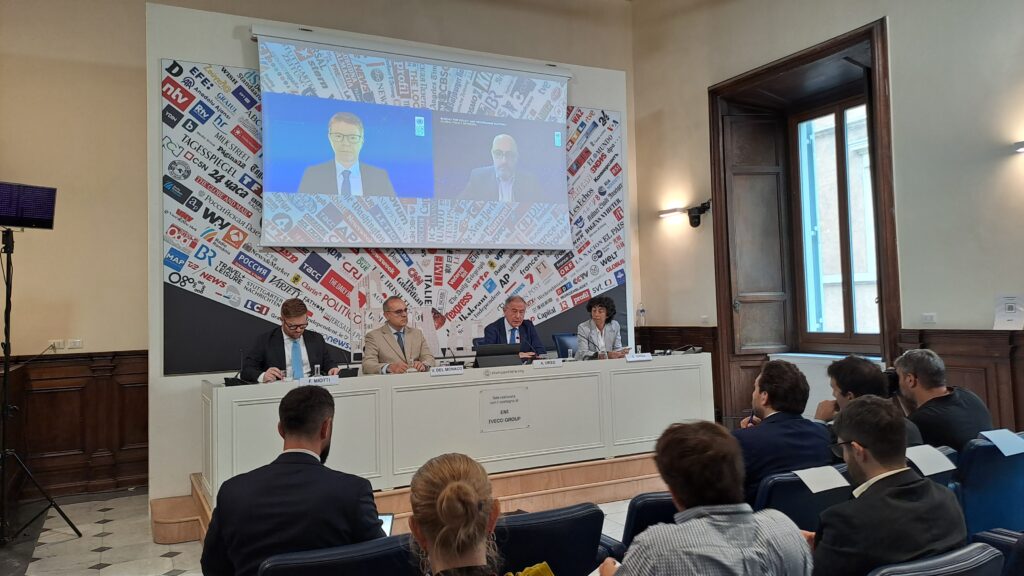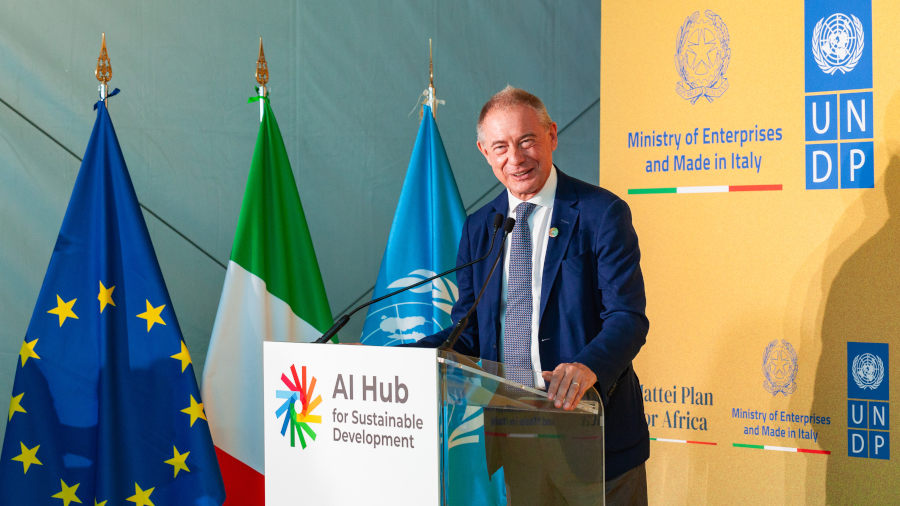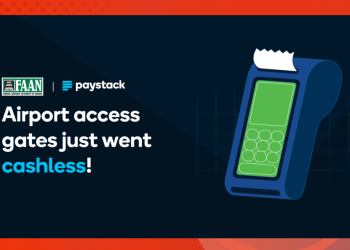Egypt has officially joined Italy’s AI Hub for Sustainable Development, launched at the United Nations Development Programme headquarters in Rome. Egyptian Communications and Information Technology Minister Amr Talaat attended the launch ceremony, following a personal invitation from Italian Minister of Enterprises Adolfo Urso.
The event took place under Italy’s G7 presidency initiative and signals a new era of AI-focused partnerships between developed and developing nations. The AI Hub represents the first collaborative platform of its kind, designed specifically to accelerate AI-driven industrial growth across Africa.
Egypt was among 14 African nations selected for the initial collaboration, positioning the country as a key player in the continent’s digital transformation efforts.
Building Africa’s AI Infrastructure
The new hub addresses critical gaps in Africa’s AI ecosystem. It focuses on three core areas: enhancing access to computing power for African AI innovators, developing sustainable AI infrastructure in priority countries, and creating partnerships between African startups and G7-based companies.
According to UNDP officials, the initiative goes beyond traditional technology transfer models. Instead of simply providing training on existing tools, the hub strengthens the fundamental building blocks of AI development including data access, computing resources, talent development, and strategic partnerships.
Minister Urso outlined ambitious goals for the project. Italy plans to support around 500,000 local startups across Africa over the next three years through concrete projects that improve access to computing capacity and enhance local infrastructure.
Egypt’s Strategic Position
Egypt’s selection for the hub’s leadership positions reflects the country’s growing influence in AI development. According to Egyptian Ambassador to Italy Bassam Rady, Egypt was chosen to join the center’s Board of Directors for both the current year and the next term.
The partnership aligns with Egypt’s updated National AI Strategy for 2025-2030, which Minister Talaat presented during discussions in Rome. The strategy encompasses six key pillars supported by 21 strategic initiatives focused on AI governance, innovation, data infrastructure, ecosystem development, technological capabilities, and talent development.

G7 Backing and Global Support
The AI Hub carries significant international weight, having received formal endorsement from G7 leaders during their meeting in Borgo Egnazia, Italy, in 2024. The project operates as part of Italy’s broader Mattei Plan, a 5 billion euro initiative designed to strengthen economic partnerships with African nations through sustainable development investments.
UNDP Chief Digital Officer Robert Opp emphasized the collaborative nature of the initiative. “African priorities are shaping every aspect of the AI Hub’s programmes, which are designed to evolve as African AI needs change and new opportunities emerge,” he stated during the launch event.
Industry Leaders Join Forces
The launch ceremony brought together major technology companies and government officials from across Africa, Europe, and North America. Notable attendees included Microsoft Vice Chair and President Brad Smith, highlighting the private sector’s commitment to the initiative.
The hub’s approach focuses on supporting local African innovators rather than imposing external solutions. This methodology aims to ensure that AI developments address genuine community needs while creating solutions that can serve both local markets and global demand.
Minister Talaat’s participation in the Rome launch follows Egypt’s broader push to establish itself as a regional AI leader. Earlier this year, Egypt partnered with IBM on a five-year collaboration to advance the country’s AI ecosystem, and the government has been actively promoting AI adoption across various sectors including healthcare, education, and governance.
The AI Hub launch represents a shift from traditional aid models toward partnership-based development approaches. For Egypt specifically, participation in the hub provides access to advanced computing resources, international partnerships, and technology transfer opportunities that could accelerate the country’s digital transformation goals while positioning it as a gateway between African and European AI markets.














